 How To Learn Vocabulary Effectively
How To Learn Vocabulary Effectively
For modern languages, you need vocabulary to communicate well. However, students often find it difficult to remember words and sentences they are taught in the classroom between lessons. Some learners equally struggle to know how to learn vocabulary outside of the classroom, which can therefore present a problem in the ability to communicate verbally or in written form, as well as understand information aurally or through reading. If students are unable to complete the tasks required of them in the MFL classroom, then they will feel demotivated which will lead to its own issues including de-motivation, and even a feeling of failure or frustration.
I started learning Gujarati when I was a young child, German when I was eleven years old, French at the age of twelve years old and Spanish at the age of seventeen, so I have first hand experience in knowing that in order to be able to communicate and comprehend a language, vocabulary is a vital element and how to learn vocabulary is often taken for granted.
Do Students Know How To Learn Vocabulary?
Firstly, students don’t really know how to learn vocabulary so that it is retained and for this reason I feel strongly that they should explicitly be taught:
a) how they should learn vocabulary phrases, sentences and structures regularly to improve comprehension and communication, i.e. by doing something meaningful with what they are learning so that it is retained in their memory ready to use in the future. For example, writing the words, saying the words, spelling them out or doing activities using them.
b) what does not class as learning vocabulary, i.e. simply looking through their vocabulary book or list before a test or assessment on the bus, since it won’t be retained in the brain for long.
What Vocabulary Learning Methods Do I Recommend?
My students often ask me how to learn vocabulary and over the last year, I have recommended the Look, Cover, Say, Write, Check method for learning words, questions, phrases and sentences. Many of my students have found this manner of learning vocabulary extremely beneficial and this has certainly been a factor in improved grades and confidence for a number of learners. In addition to this, I have also purchased an annual subscription to Quizlet.com, because I could see the benefits in students using technology for more ‘fun’ repetition of vocabulary acquisition and I wanted to track their progress. I have tested this with two groups of Year 10 German learners and there is a noticeable difference in the ability of those students who used Quizlet, to produce and comprehend more coherent German using the vocabulary they have learnt on Quizlet, compared to those who don’t use the website.
Considering the VARK (Visual, Aural, Read/Write and Kinaesthetic) learning styles model, not all learners learn best using the Look, Say, Cover, Write, Check vocabulary learning method, or by using Quizlet, so I have put together (what I feel!) is a useful list of How-To-Learn-Vocabulary-Effectively-for-French-German-Spanish.docx (4271 downloads ) in handout form, which illustrates effective ways to learn vocabulary for modern languages, including French, German and Spanish. The list contains vocabulary learning ideas for visual learners, as well as read/write and kinaesthetic learners. Thank you to all those people who have shared vocab learning methods online to give me the ideas to create the handout.
I will be distributing the handout to my students at the beginning of the next academic year to get them into good habits and ensure that they understand the need for learning vocabulary regularly, as well as lots of options for how to learn vocabulary.
Let me know if you have any others that I am missing!
Download the A4 single page handout here: How-To-Learn-Vocabulary-Effectively-for-French-German-Spanish.docx (4271 downloads )
Other posts you might find useful as an MFL teacher:
Join TheIdealTeacher.com’s exclusive mailing list below to keep up-to-date with all of my latest content, including fab teaching ideas and activities!
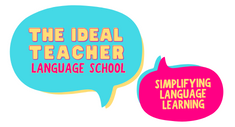
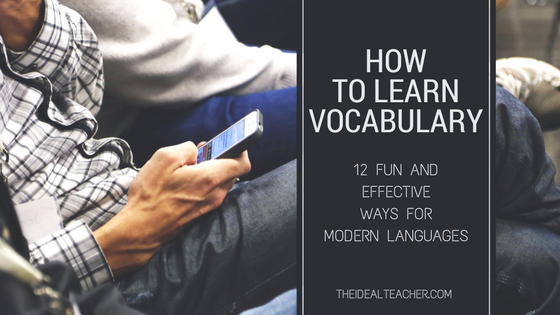
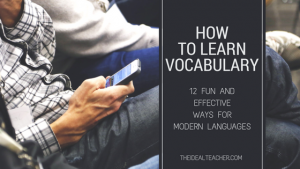
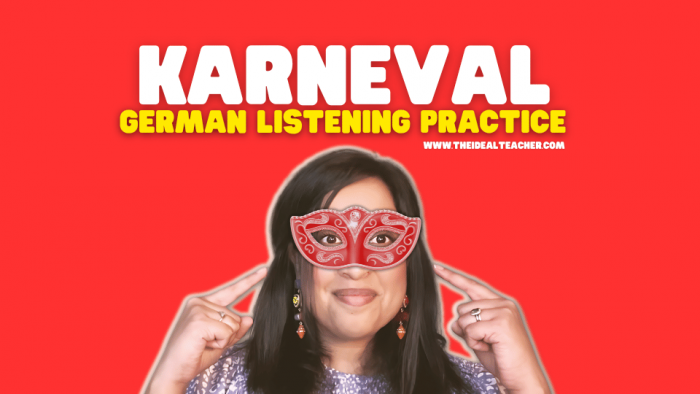
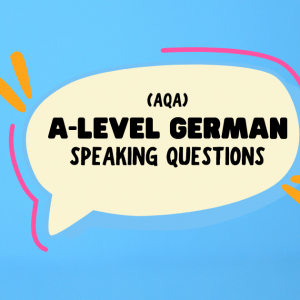

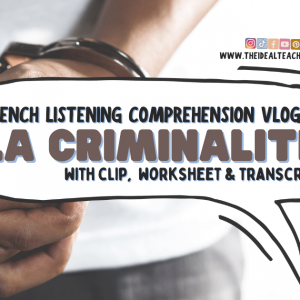
Hello,
I would like to add one more tool that we launched a few months ago. Worddio combines two of the most popular practices for memorize a new foreign words. Flashcards and listening to words spoken by native speakers. You could learn while doing something else. Please visit our site Worddio.com. Download the app and test it. If you like we will unlock a language that you like – just write us an email.